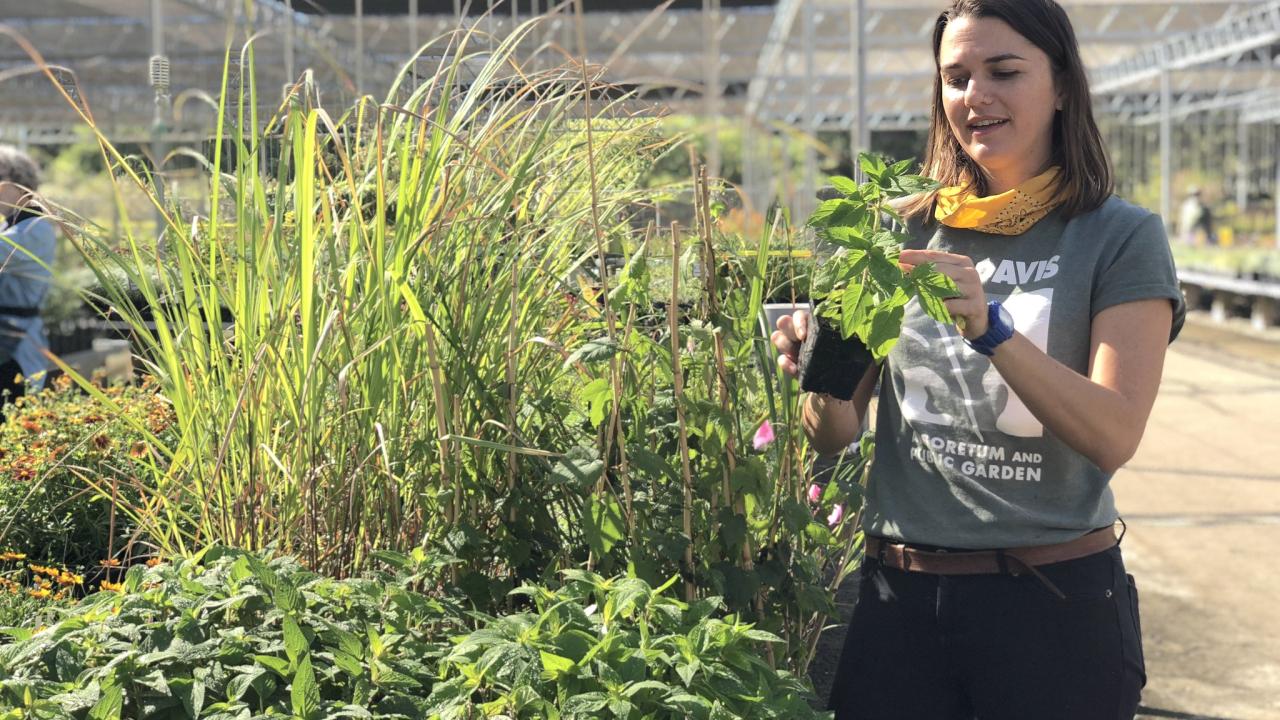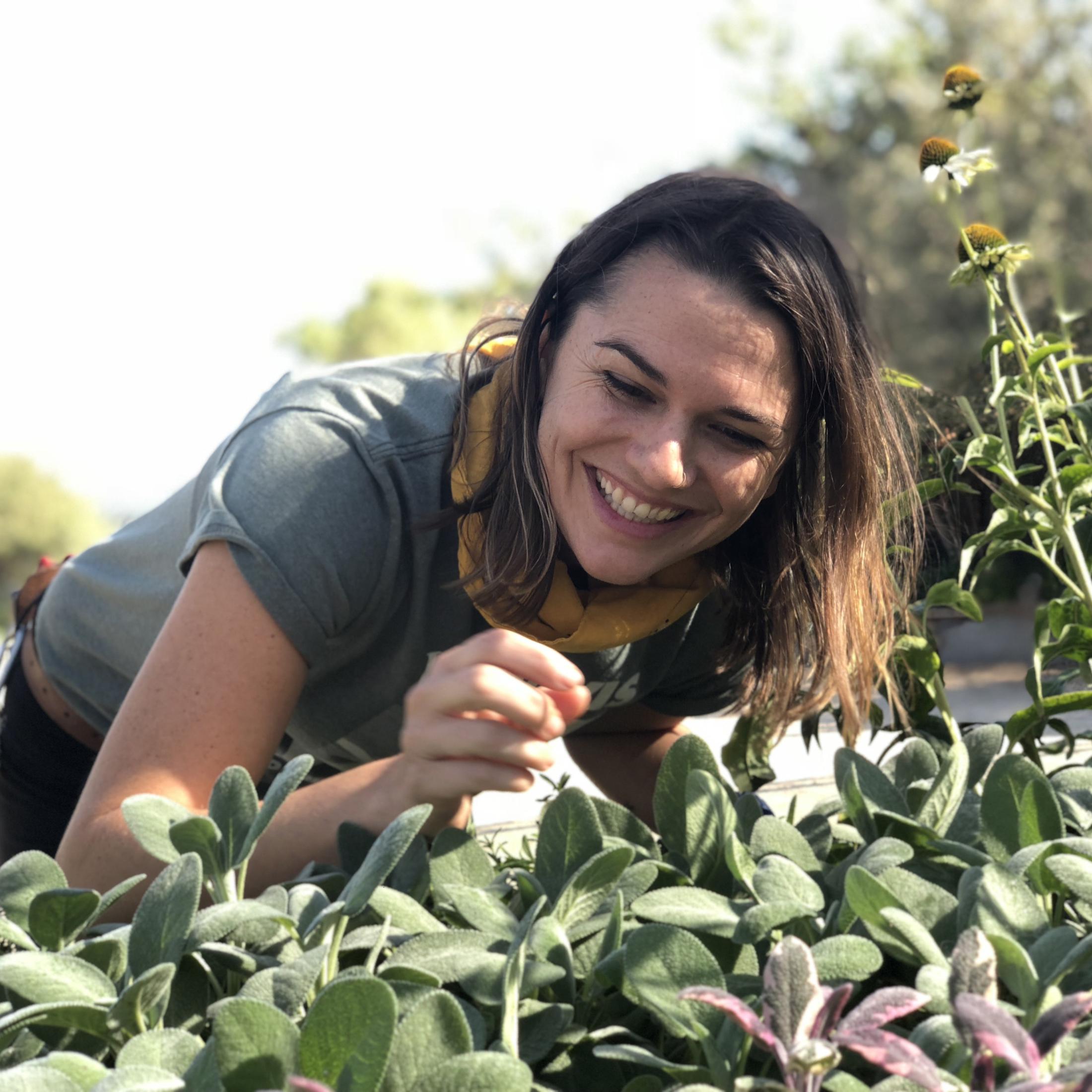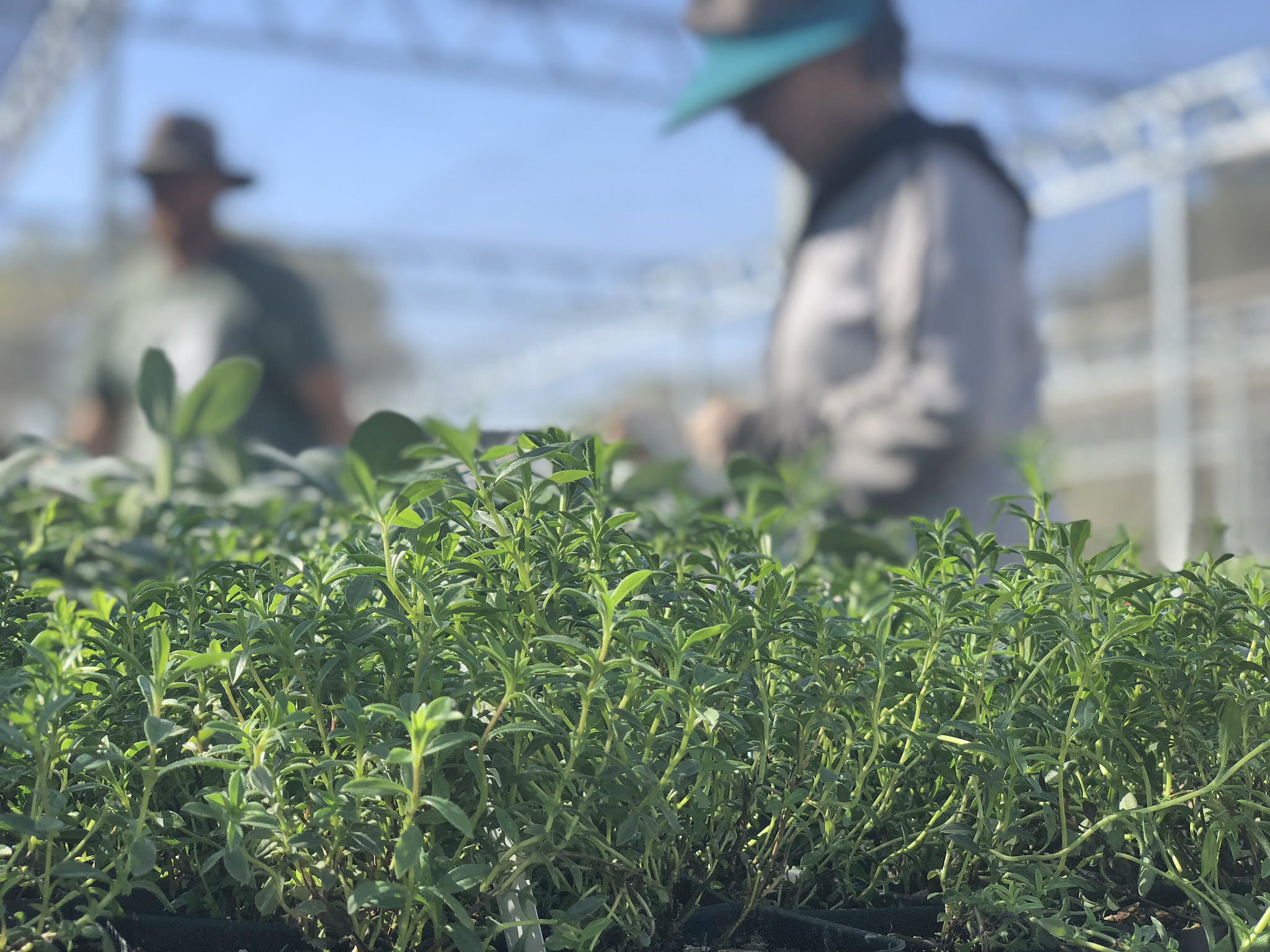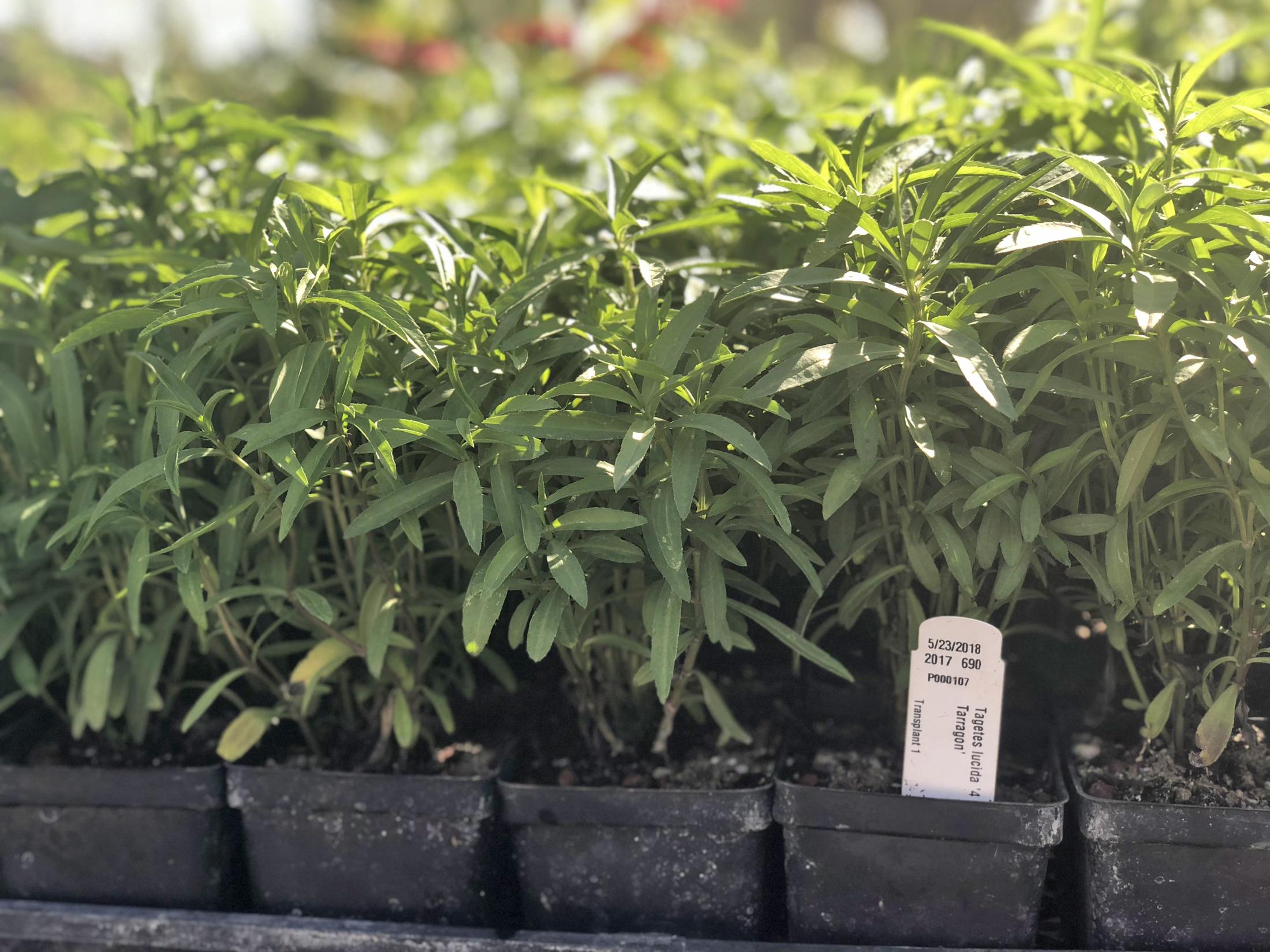
Spice up your life, garden with herbs
by Abbey Hart, nursery special projects manager and Katie Hetrick, communications director
Shop the UC Davis Arboretum Teaching Nursery
Each fall and spring the UC Davis Arboretum Teaching Nursery opens its doors to the public to offer the area's largest selection of attractive, low-water, easy-care plants perfect for this region.
Learn more.
A brief stroll down a growing number of streets reveals a new landscape aesthetic where traditional lawns transition to sustainable landscapes. As a region we focused on water savings – opting for drought-tolerant plants – then, many gardeners and DIY homeowners layered in flowering perennials with varying bloom times to entice native pollinators, so what’s next? How about something for the environment, for pollinators and for you? The answer: herbs!
Not only are herbs a sensory delight, most are well adapted to our climate. Plus, there is something particularly delightful about walking into your garden, collecting from beautiful and stimulating plants and using the fruits of your labor to add flavor to your food. Planting herbs connects your garden to your gut, and gives you the opportunity to experience your plants through gastronomic and olfactory avenues. The ultimate bonus – they contribute food sources and habitat for your friendly neighborhood pollinators.

Video: Herb Overview with Abbey
Watch and listen as Abbey Hart, nursery special projects manager, talks about all the herbs available at the Friends of the UC Davis Arboretum and Public Garden's upcoming plant sales.
“At the Friends of the UC Davis Arboretum and Public Garden’s upcoming plant sale fundraisers, we plan to have a diverse, unique and growing selection of herbs,” says Abbey Hart, nursery special projects manager. “I love growing them, so now, in addition to all the California natives, Arboretum All-Stars and other plants perfect for our region, we are adding some spice to your landscapes as well!
“At the upcoming sales, I hope people sample a leaf or two from the herb aisle,” says Hart. “If you think they are too strong, considering drying them – luckily, our climate is perfect for that task!”
Hart has grown dozens of herbs for customers of the Friends of the UC Davis Arboretum and Public Garden plant sales. Choices include chives, Stevia, lemongrass, fennel, mint, oregano, coriander, rosemary, sage, thyme, savory and more. Below are a few of her favorites.

Winter savory (Satureja montana) is a favorite old-fashioned and underutilized herb. Its peppery leaves have more kick than its annual cousin, summer savory. Its delicate semi-evergreen foliage and lilac-white flowers make it a charming border plant that grows to about one foot tall and wide. Its dainty flowers will provide nectar for the pollinators and its leaves provide great flavor in soups, stuffings, and roasts, but do not be afraid to experiment! Like most Mediterranean herbs, savory is drought-tolerant and prefers sun and well-drained soil.

Mexican tarragon (Tagetes lucida) is a delicious and dependable herb. If you have tried to grow French tarragon (Artemisia dracunculus) and struggled, this is your solution! It is amenable to our climate, looks beautiful throughout our hot summers although it can be a little tender in our winters. It has prolific foliage with a rich and sweet anise flavor. The leaves can be used fresh or dried in Herbes de Provence mixes, on potatoes, seafood, stews, sauces and salads. Furthermore, Mexican tarragon creates an agreeable aesthetic to your garden. It is a perennial with a tidy shape (about three feet tall and wide). It displays a charming show of cute yellow flowers similar to marigold (a close relative) that will attract and feed pollinators. Plant it on borders so you can delight in its fragrance while brushing past it and collect flower petals for a colorful garnish to summer salads.

Oregano (Origanum vulgare) flowers are a favorite of pollinators of all kinds, especially bees (including our native species). Try Sicilian marjoram, a hybrid of marjoram and oregano, with a sweet, mild flavor. Most oreganos are drought-tolerant, vigorous, competitive perennials that like well-drained soil. Oregano can be used fresh, but for a less intense flavor try it dried.
